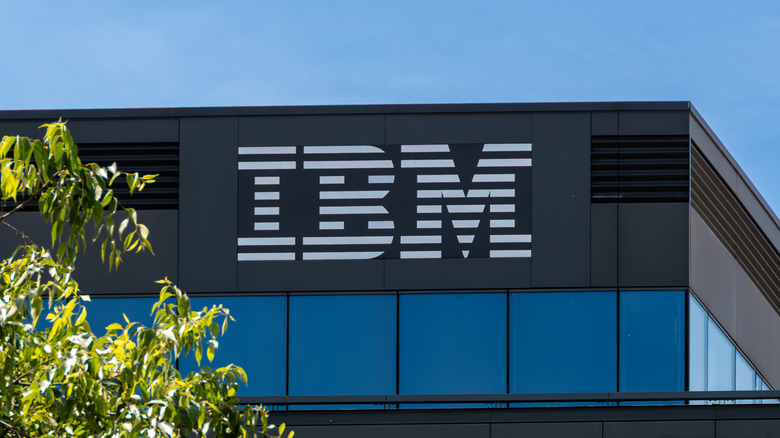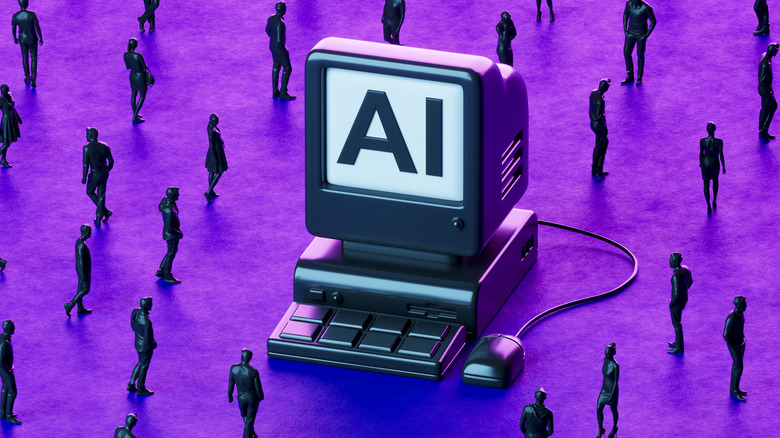IBM's 8,000 Layoffs Reveal The Harsh Reality Of The AI Revolution
IBM has historically been at the frontier of computing, and it intends to do so in the age of AI. After making some of the world's most powerful supercomputers, the company is now working with CoreWeave to make an AI supercomputer. But the lean into an AI-first future also has a human cost. Talking to The Wall Street Journal, IBM chief Arvind Krishna recently revealed that the company is replacing the responsibilities of a "couple hundred human resources workers" with AI agents. IBM's decision reflects a broader pattern across the tech industry, where non-engineering roles are increasingly being offloaded to AI automation.
In IBM's case, the trade-off is a tad odd. With people in the HR department losing their jobs to AI tools, the company is instead hiring people across other departments — and in bigger numbers. "While we have done a huge amount of work inside IBM on leveraging AI and automation on certain enterprise workflows, our total employment has actually gone up, because what it does is it gives you more investment to put into other areas," Krishna was quoted as saying by The Journal.
In a separate interview with Bloomberg, the IBM chief revealed that "he could easily see" roughly 30% of its 26,000 workers in back-office roles getting replaced by AI. The outlet estimates that close to eight thousand jobs will be affected as IBM expects to stop hiring for such roles. The shift to AI is said to automate chores such as verifying employment letters or workforce movement across departments. Simultaneously, IBM jas also added nearly 7,000 new heads to its workforce in the first quarter, mostly in technical roles. Such is the frenzy in the tech industry that Meta is paying hundreds of millions of dollars for top AI talent while firing other AI workers.
It's not a guaranteed path to glory
Ever since generative AI arrived on the scene, there has been a frenzy of adoption, often at the cost of human workers. In October, Amazon revealed plans to replace nearly half a million workers with AI. The rest of the tech industry is making similar bets, further propped up by white-hot hype from AI leaders and pundits. But the reality of AI-fueled returns is not as straightforward as it seems. In some cases, it has actually come at the cost of serious failures.
In a widely-discussed industry report released by MIT last month, an overwhelming share of AI-focused deployments have failed to make an impact, while only 5% have any positive revenue movement due to the shift. "Despite $30 – $40 billion in enterprise investment into GenAI, this report uncovers a surprising result in that 95% of organizations are getting zero return," says the report. Another report by McKinsey notes that only 1% of the US-based companies that have invested in AI have been able to scale above their spending. According to an analysis by Boston Consulting Group, one-in-three companies are targeting an AI splurge worth over $25 million, but nearly 75% of them are not getting any return on their investment. Then there's the costly side of AI failures.
Harness reports that 45% AI deployment results in code errors and "72% of organizations have already suffered at least one production incident caused by AI-generated code." A US-based law firm had to tender an apology after using an AI tool that made factual errors and fabricated citations. Interestingly, a high-profile AI project spearheaded by IBM failed just over a year. McDonald's AI-powered drive-thru system for taking orders, developed in partnership with IBM, was shuttered after making too many mistakes.

